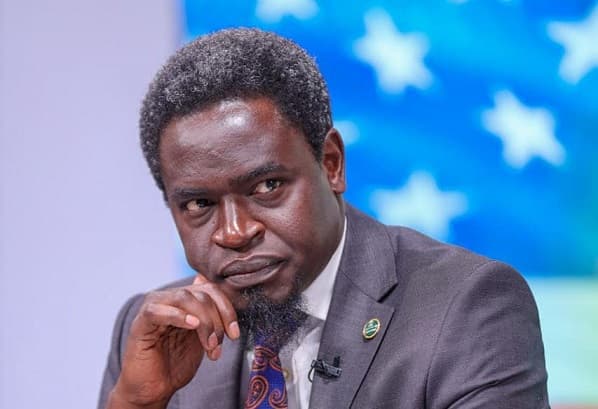We're loading the full news article for you. This includes the article content, images, author information, and related articles.
High Court ruling against the Directorate of Criminal Investigations and Attorney-General reignites debate on police powers and state accountability in Kenya, mandating compensation for rights violations against the former LSK President.

NAIROBI, KENYA – The High Court of Kenya on Thursday, October 30, 2025, ordered the Directorate of Criminal Investigations (DCI) and the Attorney-General to pay former Law Society of Kenya (LSK) President Nelson Havi a total of Sh5.2 million for his unlawful arrest and detention in July 2021. The ruling, which found the state had violated Mr. Havi’s constitutional rights, marks a significant moment in the ongoing struggle for police accountability and judicial oversight in the country.
The court’s decision enforces a prior judgment from December 2023, which declared Mr. Havi's arrest unconstitutional and awarded him Sh5 million in damages. The updated sum includes Sh237,808 in accrued interest after the government failed to comply with the initial ruling. Mr. Havi had filed a judicial review application to compel payment after multiple demand letters sent to the Attorney-General since March 2024 went unanswered, a move his legal team argued was necessary despite Section 21 of the Government Proceedings Act, which mandates payment by accounting officers.
The case originates from Mr. Havi's arrest by DCI officers at his office on Tuesday, July 13, 2021. At the time, he was the sitting President of the LSK. The arrest was based on a complaint of assault filed by Mercy Kalondu Wambua, who was the LSK's Chief Executive Officer. Ms. Wambua alleged that Mr. Havi assaulted her during a contentious council meeting at the society's headquarters the preceding day, causing injury to her fingers when he slammed a laptop shut.
Mr. Havi consistently denied the allegations, claiming they were part of a wider scheme to undermine his leadership and efforts to audit the LSK's finances. He maintained that Ms. Wambua, whom the LSK council had previously attempted to suspend, interrupted a meeting with the intent to secretly record proceedings. Following the incident, Mr. Havi was taken to the DCI headquarters for questioning and was released later that day on a Sh10,000 cash bail pending a court appearance.
In his petition to the High Court, Mr. Havi argued that the arrest and subsequent investigation were malicious and violated his rights under several articles of the Constitution, including Article 27 (equality), Article 28 (human dignity), Article 29 (freedom from arbitrary detention), and Article 47 (fair administrative action). The court ultimately agreed, quashing the investigations as unlawful, null, and void in its December 2023 judgment.
This ruling arrives amidst a broader national conversation about police misconduct and the state's responsibility to compensate victims of rights violations. The judiciary has increasingly played a crucial role in holding law enforcement agencies accountable. High-profile cases, such as the conviction of police officers for the murders of lawyer Willie Kimani, his client, and their taxi driver in 2016, have set important precedents. Similarly, a 2018 conviction of a senior police officer for a death in custody highlighted the growing impact of the Independent Policing Oversight Authority (IPOA).
However, enforcing these judgments and ensuring timely compensation remains a significant challenge. The government's initial failure to pay the damages awarded to Mr. Havi is emblematic of systemic delays. This issue is not isolated; in July 2025, the government compensated four women who were victims of sexual violence during the 2007 post-election violence, but only after a 13-year legal battle and a 2020 court order. Human rights organizations like the International Justice Mission (IJM) have documented over 500 killings by police between 2019 and 2021, noting that while convictions of officers are increasing, the path to justice for victims is often long and arduous.
The High Court's order compelling the DCI and the Attorney-General to pay Mr. Havi serves as a firm reminder of the state's obligation to adhere to judicial rulings. It reinforces the principle that no institution is above the law and underscores the financial consequences of unconstitutional actions by security organs. For the Kenyan public, this case is a critical test of the state's commitment to the rule of law and its willingness to provide effective remedies for citizens whose rights have been violated by those in power.
Keep the conversation in one place—threads here stay linked to the story and in the forums.
Sign in to start a discussion
Start a conversation about this story and keep it linked here.
Other hot threads
E-sports and Gaming Community in Kenya
Active 9 months ago
The Role of Technology in Modern Agriculture (AgriTech)
Active 9 months ago
Popular Recreational Activities Across Counties
Active 9 months ago
Investing in Youth Sports Development Programs
Active 9 months ago